Update time:2025-06-12Visits:20424
Dr. Ding Zhengping

Dr. Ding Zhengping, Oncology Department of Shanghai Chest Hospital


Preface:
His scalpel is aimed at lung cancer, but originally, that blade was meant for a different path. As a young boy, Ding Zhengping was fascinated by mechanics and mathematics, dreaming of becoming an engineer.
Yet, it seemed the gears of fate steered him toward another destiny—becoming an oncological surgeon. Today, he is a poet of the scalpel, stitching hope into the most fragile folds of life. The shadows of plane trees flow like rivers over his shoulders, and the golden threads on the banners whisper in the twilight. The dawns and dusks he has sewn together now beat anew in chests, pulsing like misplaced stars on an engineer’s unfinished blueprint. He is also a guide under the shadowless lamp, turning heart-stopping surprises into a lullaby of certainty.
Like a dedicated healer mending time, he threads his way through the labyrinth of scars and new tissue. From an apprentice gazing at the hems of his mentors’ robes, to a brave soul holding a lantern alone on the edge of life and death, he has become the moonlight that lifts the fingertips of young doctors. The ever-burning lamp in the operating room is his unfinished promise to the world. Thirty years of honing his blade have made him a master of oncological surgery.
He is not only a healer, but a surgical artist whose every movement tells a story of devotion, precision, and quiet perseverance. In China, this kind of dedeication is known as gongjiang jinshen —— the "spirit of the craftsman." It goes beyond technical skill; It embodies humility, consistency, and a lifelong pursuit of excellence. Though rooted in traditional craftsmanship, this spirit lieves on in modern professions——from artisans to surgeons like Dr. Ding Zhengping, who brings it into the operating room every day.
He says, “Every minute on the operating table is a dialogue with life.” His voice is not loud, but it carries a weight that is profound.

1 My road to be a surgeon
"My journey into medicine began with my father's illness—a turning point in my life and the starting point of my decision to pursue a career in medicine."
From a young age, Ding Zhengping dreamed of becoming an engineer, deeply passionate about technology and mathematics. However, when his father was struck by illness, a sense of helplessness pierced his heart like an invisible blade. After graduating from high school, Ding faced a pivotal life choice: to become an engineer or to venture into the unfamiliar field of medicine.
The thought of his father’s suffering made Ding’s heart ache as if it might shatter.
"Back then, I realized that while an engineer’s hands could build bridges and pave roads, they couldn’t fill the chasm between life and death. If I were a doctor, perhaps my father wouldn’t have had so many regrets."
The idea of becoming a doctor lingered in Ding’s mind. With resolve, he chose to study medicine, setting off for Shanghai Second Medical University, determined to save lives through healing.
Medical school was full of challenges, but Ding never regretted his choice. After graduation, he was assigned to Shanghai Chest Hospital. At the time, oncological surgery was not yet prominent, but Ding’s curiosity and drive for exploration led him to make his choice.
"Back then, cardiothoracic surgery was often grouped together, meaning you could choose between cardiac surgery and thoracic surgery. Cardiac surgery was more popular, while thoracic surgery wasn’t as sought after. Assignments were the norm, and I simply chose thoracic surgery—a field I genuinely liked."
For the first decade in thoracic surgery, Ding worked diligently in the background.
During this time, Shanghai Chest Hospital established a new Pulmonary Clinical Medicine Center, aiming to pool resources and focus on research and treatment of lung diseases.
"At the time, our hospital transferred some doctors from surgery and pulmonology to build the center. Gradually, it evolved into an oncology department, integrating resources from both surgery and internal medicine. I followed our senior director, Dr. Zhou Yunzhong, to the new department."
Dr. Zhou Yunzhong, a renowned thoracic surgeon in Shanghai, was highly respected in the field. His experience and skill always brought comfort to his patients. Ding’s time with Dr. Zhou solidified his future direction—oncological surgery.
As his surgical skills improved, Ding earned the hospital’s recognition and an opportunity to study in Japan.
"What struck me most was the teamwork. In Japan, I saw every doctor fulfilling their role with dedication, collaborating seamlessly to provide the best care for patients. This spirit of teamwork profoundly influenced me, and I came to truly understand the importance of colleagues learning from and supporting one another for the development of the department."

2.The Dedication of a dedicated healer Physician
In 2018, Shanghai Chest Hospital introduced the concept of the "Dedicated healer Physician" and selected its first group of honorees. Ding Zhengping, as one of them, felt immense pride. This title was not only a recognition of his years of hard work but also an affirmation of his unwavering commitment to the spirit of dedicated healer.
For Ding, the dedicated healer’s ethos is not just a slogan—it’s a principle that must permeate every surgery, every consultation, and every aspect of patient care.
When faced with complex cases and challenges, he always conducts a thorough analysis based on the patient’s specific condition, making informed decisions and choosing the most suitable surgical approach. He believes that while medical philosophies may vary, the patient’s life must always come first, guiding the most reasonable recommendations.
"The 'dedicated healer' selection is based on actual performance—it’s evaluated through the quantity and quality of my surgeries over the past five years, not on who speaks well or has the most votes."
This fair and transparent evaluation method reinforced Ding’s dedication to the dedicated healer’s spirit.
"To me, every surgery is a work of art, requiring meticulous care. The dedicated healer’s spirit is reflected in every detail."
In 2018, Ding treated an elderly patient named Mr. Jiang, who was diagnosed with advanced-stage lung cancer. Mr. Jiang’s case was particularly complex: the tumor was located inside the trachea, classified as central-type lung cancer. Such tumors are often difficult to completely remove through surgery alone, as they are not only large but also accompanied by lymph node metastasis. Ding judged that direct surgery posed high risks and might yield poor results.
"For Mr. Jiang, I believed surgery alone wouldn’t suffice," Ding recalled. "He was in an advanced stage, with the tumor growing inside the trachea and enlarged lymph nodes." Faced with this situation, Ding decided to adopt a comprehensive treatment plan, hoping to shrink the tumor through chemotherapy or targeted therapy to create conditions for subsequent surgery.
After consulting with Dr. Lu Shun, a renowned oncologist at the hospital, they decided to try the latest immunotherapy approach.
Dr. Lu Shun, a leading expert in oncology with in-depth knowledge of immunotherapy, conducted detailed genetic testing and evaluation, confirming that Mr. Jiang was a suitable candidate for immunotherapy. Thus, Mr. Jiang began a combined course of chemotherapy and immunotherapy.
Months later, CT scans showed significant tumor shrinkage, but Ding remained cautious. "Although the CT scan indicates the tumor has shrunk, the internal situation is still very complex," he explained. "It’s like a mass has turned into a hard scar, requiring careful dissection and removal—it’s extremely challenging."
The tumor was severely adhered to surrounding tissues, with blood vessels and the trachea tightly intertwined, demanding extremely precise maneuvers to separate them. Ding opted for open surgery, performing a sleeve resection. This method involves cutting the trachea, removing the tumor, and then reconnecting the two ends.
"This is where fundamental skills are put to the test," Ding said.
During the surgery, he meticulously stitched the trachea, ensuring every detail was handled with care. With the team’s collective effort, the surgery was successfully completed, and Mr. Jiang’s tumor was entirely removed.
Mr. Jiang’s case became the first successful complex surgery in China following immunotherapy, and it was also one of the rare attempts internationally at the time. Ding’s groundbreaking work provided valuable insights for surgeries post-immunotherapy. After the operation, Mr. Jiang recovered well, with a significant improvement in his quality of life.
"Truly, the dedicated healer’s spirit is reflected in every detail of every surgery—each step must be executed to perfection."
Every surgery is personalized; no two are exactly the same. Ding excels in various surgical treatments, tailoring the most suitable approach for each patient, whether in early or advanced stages of lung cancer. Years of clinical experience have equipped him with extensive knowledge and skills, allowing him to handle complex cases with ease.
"Sometimes you need to go small, and other times you need to go big—this requires years of experience and judgment from the physician."


3. The Stepping Stones of a Doctor’s Growth
Dr. Ding Zhengping has been practicing medicine for over 30 years, a career marked by technical breakthroughs and personal growth. Over these decades, he has witnessed the rapid advancement of medical technologies—targeted therapies, immunotherapy, minimally invasive surgeries—that have significantly improved treatment outcomes for diseases like lung cancer and extended patients’ lives. Ding understands that as a doctor, mastering a wide range of skills is essential, as each patient’s case is unique, requiring physicians to adapt and apply their knowledge flexibly.
He reflects that his career can be divided into three stages, a progression that perhaps most doctors experience. Each stage demands patience, sustained energy, and a sense of gratitude.
In the early stage, as a young resident, he followed senior doctors daily, learning the basics—from rounds and consultations to participating in surgeries—each step taken with diligence.
"I was like a sponge back then, absorbing every bit of knowledge and experience from my mentors," he recalls. During this phase, he not only learned how to handle common cases but also gradually mastered basic surgical techniques.
As time passed, he entered the intermediate stage. By then, he was capable of working independently, leading more complex surgeries. He built on the lessons of his predecessors while honing his skills through practice.
"This was the stage where I began to face challenges on my own. Every surgery was a new learning opportunity," he says.
He remembers one particularly difficult case where the tumor was in an unusually tricky location. Despite the complexity, Ding, relying on his solid foundation and guidance from his mentors, successfully completed the surgery.
In the advanced stage, a doctor gains confidence in handling all types of surgeries and can calmly navigate any situation. By this point, not only has their technical skill reached mastery, but they also possess strong psychological confidence.
"This level of confidence is crucial for a senior specialist. I believe it’s essential for doctors to cultivate this stage. But at this point, we must also remain grateful—to our mentors, our hospital for providing this platform, and to our country for the opportunities it has given us. Ultimately, it’s the nation that has enabled us to continuously improve our medical expertise."
Ding feels that the rich clinical resources and exceptional mentors at Shanghai Chest Hospital’s oncology department have allowed him to encounter a vast number of cases and accumulate invaluable experience. "With so many patients and teachers to learn from, your expertise naturally grows. Even after 30 years, I feel that as long as my physical strength holds, a doctor’s career can be very long. Physical stamina is still crucial," he says.
The Blade That Never Retires.
Ding declares that as long as he can still lift a thoracoscope, he will stand by the operating table.
Outside the window, dusk deepens, but the shadowless lamp remains as bright as daylight—there, the tumor surgery team he personally trained is simulating paths for tomorrow’s surgery. Three decades of medical wisdom, crystallized over time, now flow into the veins of a new generation of doctors.




On-site Interview:
ShanghaiDoctor:
Dr. Ding, when dealing with complex medical issues like pulmonary vascular bleeding, what successful experiences and insights can you share?
Dr. Ding Zhengping:
When handling complex situations such as pulmonary vascular bleeding, we need to approach it like fixing a leaking water pipe—first, shut off the main valve, repair the issue, and then reopen it. This kind of anticipation and preparation is crucial. Once, we performed a highly challenging surgery that was successfully completed in two and a half hours. This experience gave us new insights—combining chemotherapy and immunotherapy before surgery may yield excellent results, boosting our confidence in surgical interventions. This technique preserves most of the lung function, improving the patient’s quality of life and prognosis.
ShanghaiDoctor:
What key treatment advice and decision-making guidance do you have for lung cancer patients and their families?
Dr. Ding Zhengping:
The key to lung cancer treatment lies in early detection and timely intervention. I advise patients and their families to pay attention to symptoms, undergo regular check-ups, and follow the recommendations of specialists. For early-stage lung cancer, surgery is usually the best option, while alternatives like radiofrequency ablation and radiotherapy are secondary choices. For very small nodules, we recommend regular follow-up observations. For mid-to-late-stage lung cancer, treatment should be tailored to the specific situation, and patients should follow their doctor’s advice to choose the most suitable plan. A chest CT scan is a routine check-up item; if suspicious nodules are found, a follow-up every six months to a year is recommended.
ShanghaiDoctor:
What do you think is the future direction of lung cancer treatment, and what role do doctors play in this process?
Dr. Ding Zhengping:
With technological advancements, lung cancer treatment will move toward completely removing the tumor while preserving as much lung function as possible. Before surgery, doctors will propose a plan based on the patient’s specific condition and advise them to follow the specialist’s recommendations. For incurable diseases, doctors will inform patients and their families of the actual situation, helping them gain a deeper understanding, accept reality, and avoid unnecessary suffering. Additionally, medical progress is closely tied to advancements in science and technology, but even the most skilled doctors cannot save every patient. Perspectives on life education and euthanasia may vary due to differing personal beliefs.
ShanghaiDoctor:
What advice do you have for young doctors just starting their careers, especially in terms of professional development and humanistic care?
Dr. Ding Zhengping:
I’d like to tell young doctors that medical work is incredibly demanding, requiring diligence, hard work, and comprehensive self-improvement. It’s not just about honing technical skills but also developing research capabilities. At the same time, they must emphasize humanistic care, adopting different strategies for patients of different age groups. For example, the story of a 90-year-old patient insisting on surgery, the necessity of surgery for those in their 70s or middle-aged, and cautious consideration for patients in their 20s or 30s. We must provide patients with the right choices and the best humanistic care, making them feel warmth and hope.
ShanghaiDoctor:
What are your main hobbies outside of work, and how do they help you in your professional and personal life?
Dr. Ding Zhengping:
My main hobby outside of work is playing tennis. I started teaching myself tennis in college and have continuously improved, now reaching an advanced amateur level. In the tennis association, I often receive praise for my skills. Playing tennis helps me relieve stress, maintain a positive mood, and strengthen my physical health. Despite the high pressure of a doctor’s job, tennis helps me balance my emotions and improve work efficiency. I believe maintaining good physical and mental health is crucial for doctors.
ShanghaiDoctor:
Can you share some rare lung cancer cases and the significance of their treatment?
Dr. Ding Zhengping:
There are indeed some rare lung cancer cases, such as a type of uncommon lymphoma. This disease often presents as multiple nodules in the lungs and can be misdiagnosed as lung cancer. However, with accurate diagnosis, these patients don’t need to have their entire adrenal gland removed and can live normally. This highlights the importance of precise diagnosis and personalized treatment plans in improving patients’ quality of life. Additionally, these rare cases remind us to remain vigilant in clinical work, continuously learn, and accumulate experience to better serve our patients.
Editor:
Chen Qing,
Yijing Li (An intern from The Ohio State University) @ShanghaiDoctor.cn
Copyright:
This article is an original work and may not be reproduced without authorization. For reprint requests, please leave a message in the backend of [Ye Wen Ren Yi (ShanghaiDoctor.cn)].
When authorized for use, please credit: “Source: [Ye Wen Ren Yi] (ShanghaiDoctor.cn) and the author.”
All article rights belong to [Ye Wen Ren Yi] (ShanghaiDoctor.cn).
Some images are sourced from the internet; infringement will be addressed upon notice.
Dr. Liang Wei | Dedicated to Vascular Health, Safeguarding the Body’s Lifelines
Dr. Zou Shien | A Physician’s Mission in Gynecological World
Dr. Bao Shihua | Where Dreams Begin from Reproductive Immunology
Dr. Yang Zhigang | The Art of the Healer: Between the Brush and the Brain
Dr. Cai Junfeng | Guarding Bone and Joint Health, Improving Quality of Life
Dr. Xu Xiaosheng|The Gentle Resilience of a Male Gynecologist
Dr. Shi Hongyu | A Cardiologist with Precision and Compassion
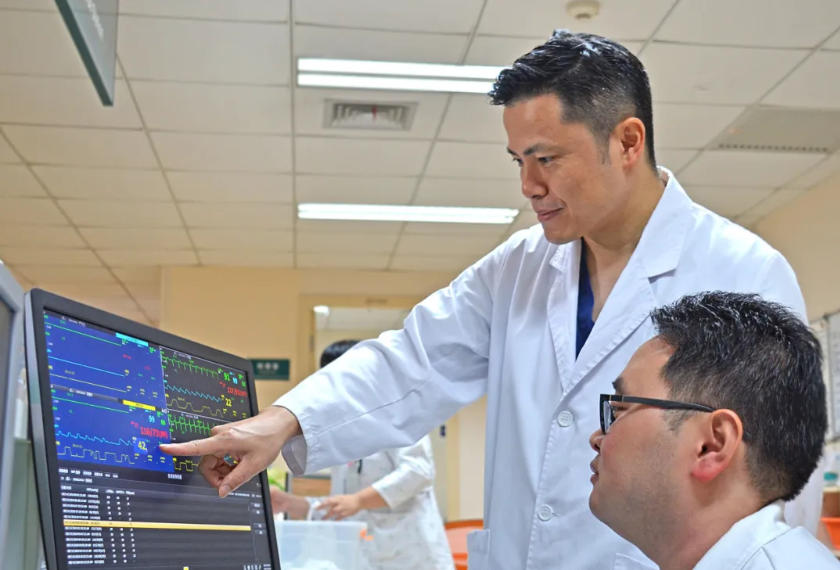
Dr. Liang Wei | Dedicated to Vascular Health, Safeguarding the Body’s Lifelines
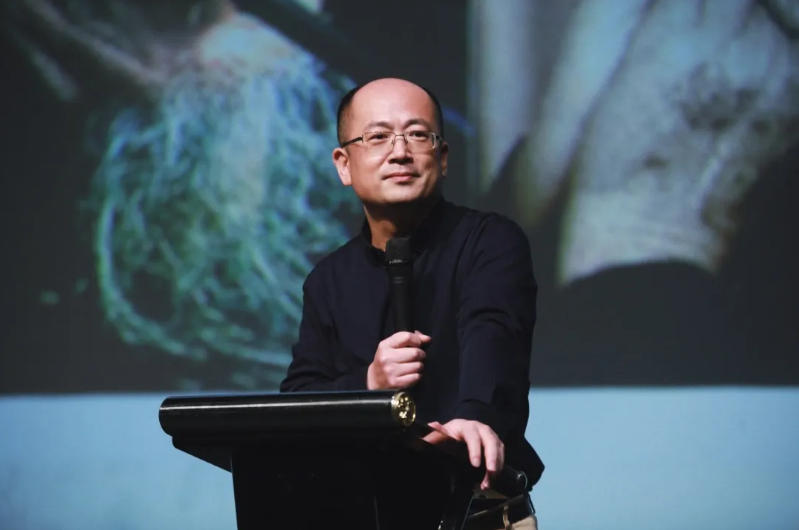
Dr. Zou Shien | A Physician’s Mission in Gynecological World
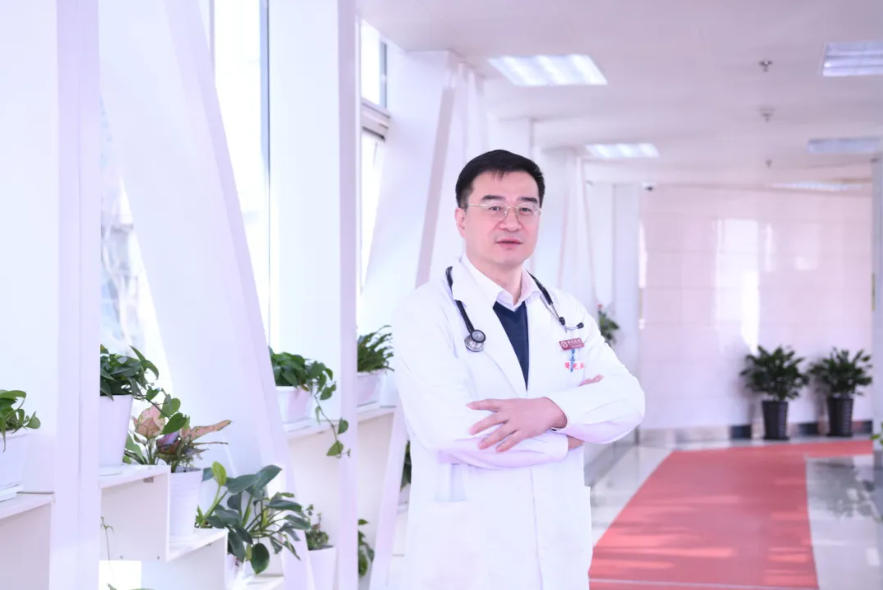
Dr. Cui Song | Healing the Heart, in Every Sense
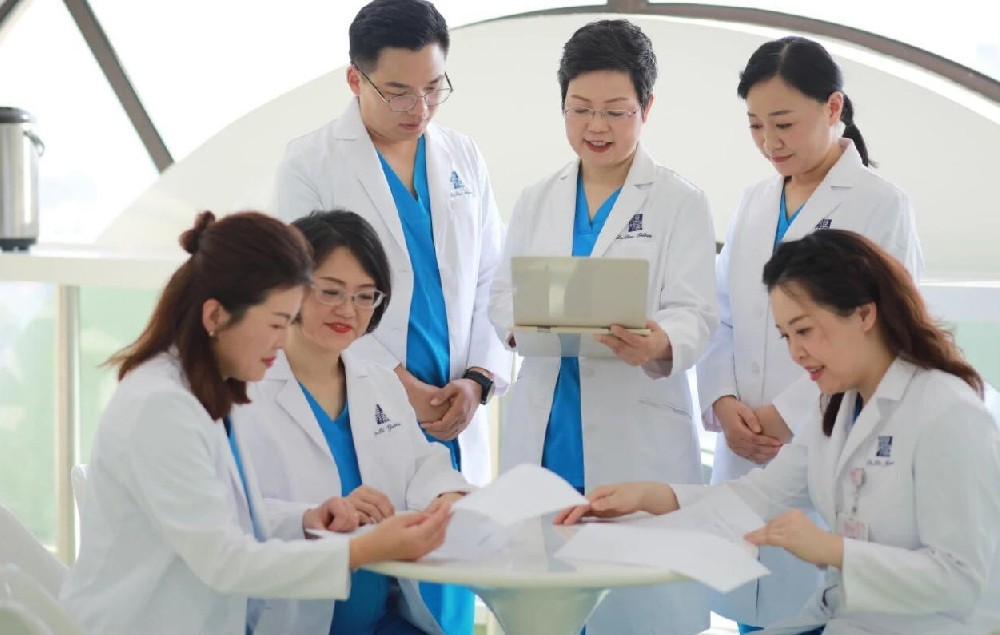
Dr. Bao Shihua | Where Dreams Begin from Reproductive Immunology
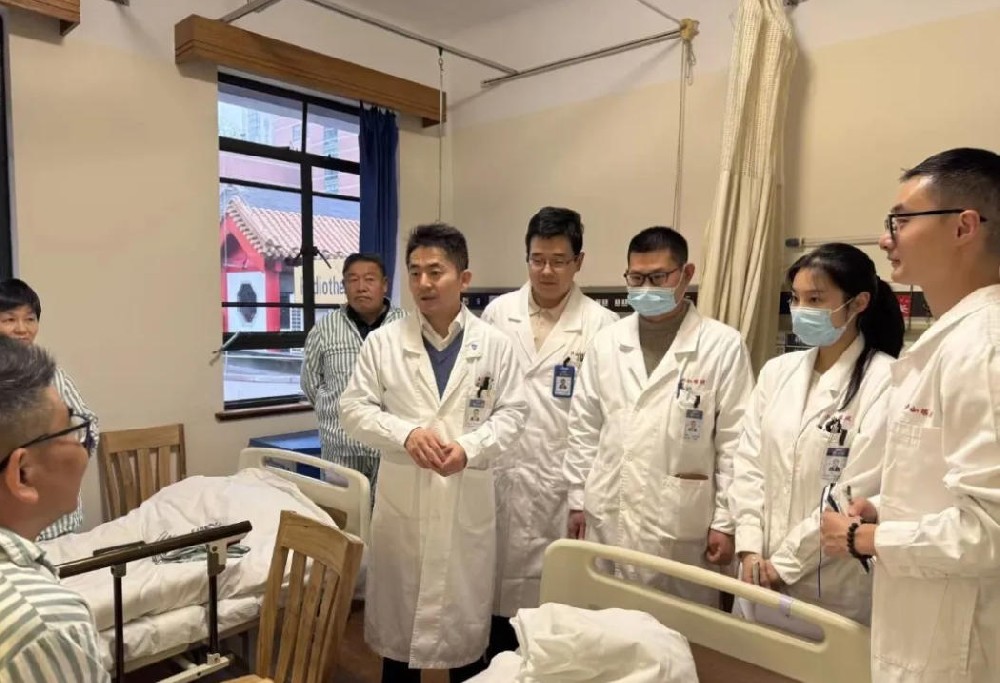
Dr. Yang Zhigang | The Art of the Healer: Between the Brush and the Brain
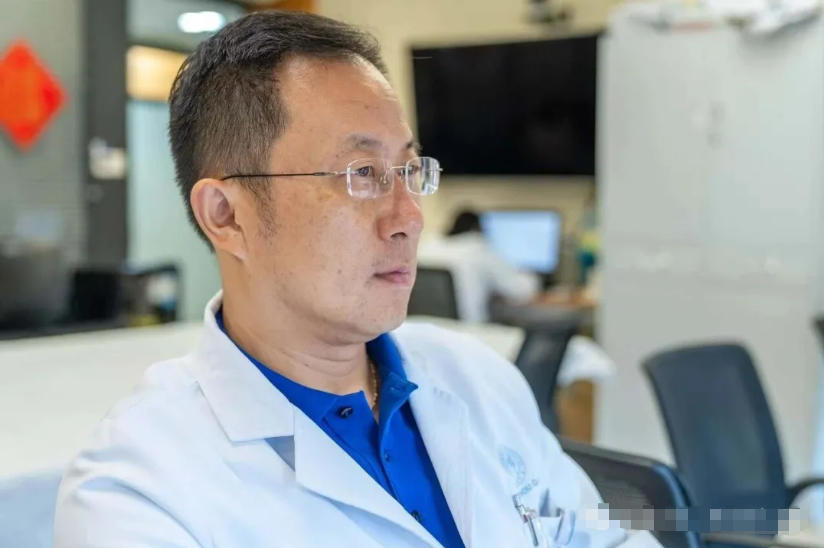
Dr. Zhou Qianjun | Sculpting Life in the Chest
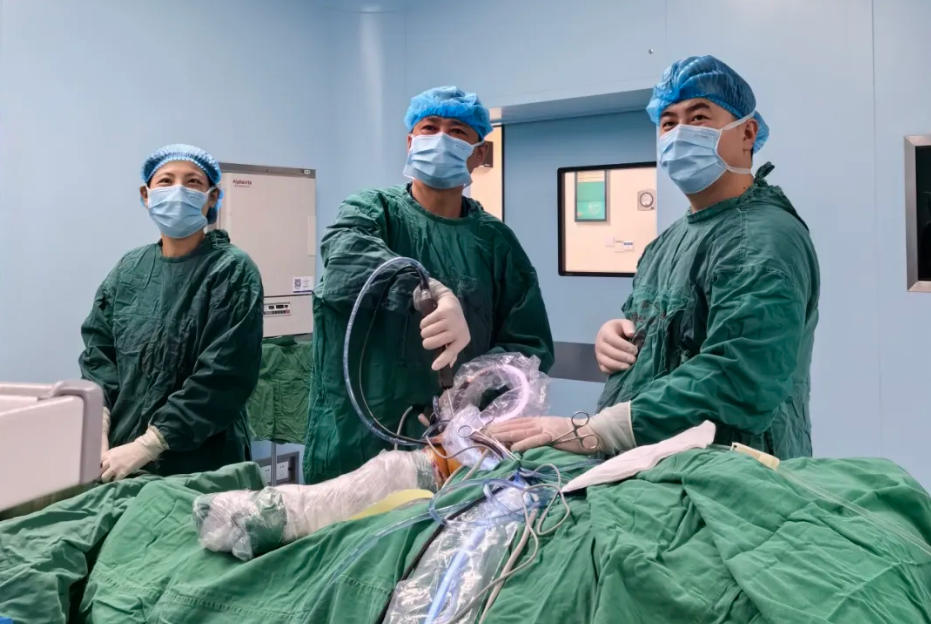
Dr. Cai Junfeng | Guarding Bone and Joint Health, Improving Quality of Life
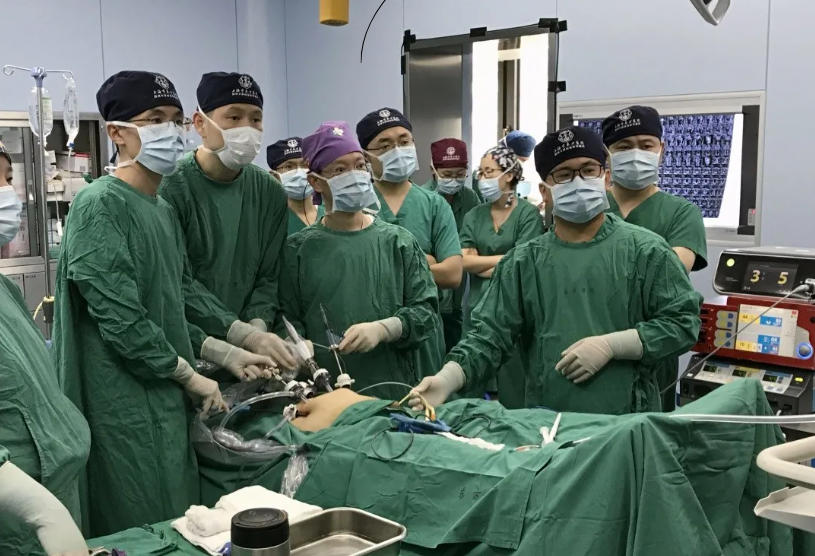
Dr. Cui Xingang | The Medical Dream of a Shanghai Urologist

Dr. Xu Xiaosheng|The Gentle Resilience of a Male Gynecologist

Dr. Shi Hongyu | A Cardiologist with Precision and Compassion